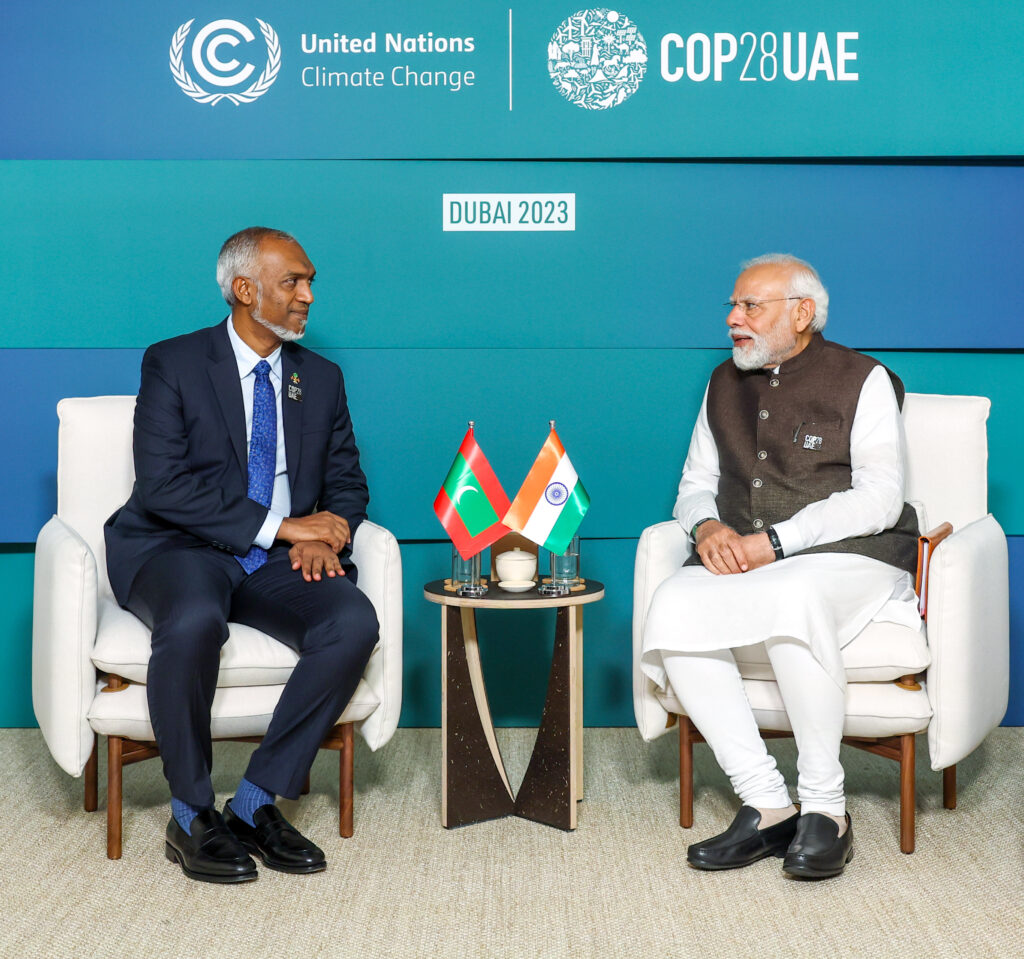Remarks made in opposition to Indian Prime Minister Narendra Modi’s visit to the Indian island territory of Lakshadweep by officials in Maldivian President Mohamed Muizzu’s new government led to a drop in tourist arrivals from India to the Maldives in early 2024. The social media campaign in India #BoycottMaldives has also impacted the number of tourist arrivals from India to the Maldives.
In post-pandemic years, India has surpassed China as the top source of tourists entering the Maldives. In July 2020, the Maldives reopened its borders for tourism after a prolonged closure. In the same year, for the first time in history, India secured the top spot with 62,960 tourist arrivals, significantly contributing to the revival of the Maldives’ economy. The tourism sector is the top contributor to the country’s GDP — accounting for 22.5 per cent. India and the Maldives enjoyed robust security, economic and political relations, and people-to-people exchanges at this time.
But domestic politics in the Maldives have impacted bilateral relations under the leadership of Muizzu, who came to power in November 2023, aided by his ‘India-Out’ stance. In addition to demanding the withdrawal of Indian troops from the island nation, the Maldivian President asked that China become the Maldives’ largest source of tourism during his official visit to China in January 2024. This request further became an irritant in India–Maldives bilateral relations and sharpened regional geopolitics.
The social media campaign and friction in India–Maldives relations quickly spilled over to the tourism sector. Tourist arrivals from China, which were minimal in post-pandemic years, soon surpassed those from India. According to tourist arrivals data from the Maldivian Ministry of Tourism, China was the top source of tourists as of 6 May 2024, with 87,566 arrivals — followed by Russia, the United Kingdom, Italy, Germany and India.
Still, the upward trend in Maldives–China relations may not be promising enough to compete with or replace longstanding India–Maldives relations. This is because India–Maldives relations have been cultivated over decades of mutual trust and people-to-people exchanges. Among other policies, these relations were manifested through the 2018 Visa Facilitation Agreement. This agreement made it easier for nationals of both countries to travel for the purpose of tourism, medical treatment, education, business and employment.
To attract Indian tourists to the Maldives during the COVID-19 pandemic, an air travel bubble was established between the two countries in August 2020. The Maldives was also the first beneficiary of visa-free travel to India after it decided to open its international borders in October 2021. The help extended by India to revive the Maldives’ tourism sector during the COVID-19 pandemic showed India’s commitment to helping its bilateral partner when it needed it most.
The Maldives’ economy has benefited from its robust relations with India for years. This underscores the impact of the decline in Indian tourists to the Maldives on the latter’s ability to address its debt issues. The decline in tourist arrivals from India is projected to cost the country approximately US$1.8 billion to US$2 billion — a huge amount for a nation with a GDP marginally over US$5 billion. The Maldives owes nearly US$400.9 million in debt to India by the end of 2023. It also owes approximately US$1.37 billion worth of debt to China. These developments may not bode well for the long-term development of the Maldives’ economy.
Muizzu has asked India to accommodate debt relief measures for the repayment of loans taken from India by successive governments. He also acknowledged that India will remain the Maldives’ closest ally. India’s role as an indispensable development partner to the Maldives has again been demonstrated by India’s renewal of the quota which will enable the Maldives to import essential commodities in 2024–2025. The Foreign Minister of Maldives, Moosa Zameer hailed India’s decision as a ‘gesture which signifies longstanding friendship’ between the two countries.
These statements reflect the need to continue robust bilateral relations, despite current upheaval in relations. Still, Maldivian domestic politics continue to underplay Maldives–India relations for short-term electoral gains, which was evident in the run-up to the parliamentary elections, which took place on 21 April 2024. The ruling party members took hard-line positions against India, impacting the normalisation of relations between the two countries.
Though the new government in the Maldives seems keen on reducing its dependency on India, especially in sectors such as tourism, this might have a long-term negative effect on people-to-people relations and overall regional stability.
There is an urgent need to normalise the Maldives’ political relations with India. A positive step in this direction is the proposal by the Maldives Association of Travel Agents and Tour Operators to explore collaborative efforts in tourism promotion through a comprehensive roadshow across cities in India. Initiatives of this nature hold the potential to revitalise Maldives–India relations and inspire hope for recovery.
Samatha Mallempati is Research Fellow at the Indian Council of World Affairs. Views expressed are personal.

